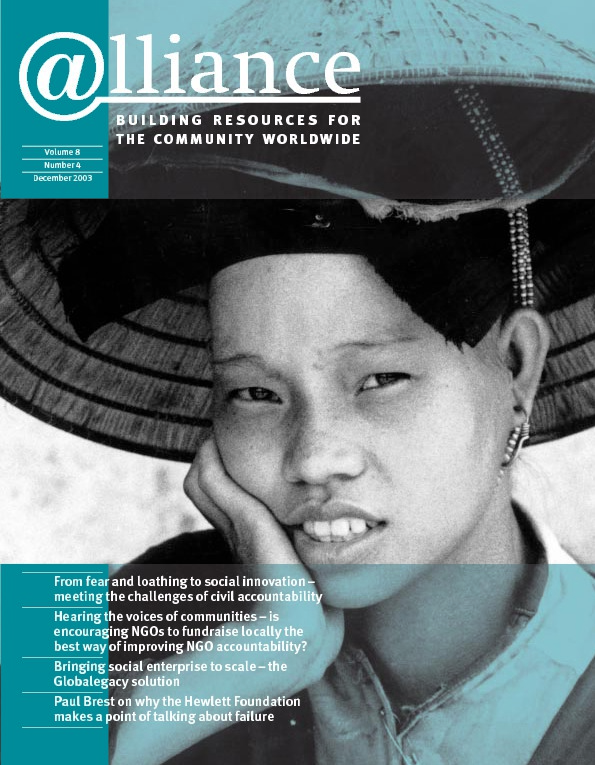What challenges do foundations face in selecting and managing their senior programme staff? A new INSP working paper finds that expectations of ‘programme officers’ are very wide-ranging: they are expected to have vision, substantive knowledge of the field, access to non-profit networks, and the interpersonal and administrative skills necessary to translate foundation missions into programme success. Perhaps surprisingly, a key challenge is that foundation jobs can be too attractive.
Nadya K Shmavonian’s paper, Management Practices in US and European Foundations (to be published in 2004), explores the human resources (HR) practices of 13 large, national US private foundations and ten European private foundations, primarily through a series of interviews with foundation executives and HR leaders.
An important finding is that the broad expectations placed upon foundation programme professionals can cause tensions. At times they are expected to be passionate about their fields and advocates for their grantees, at others they are asked to provide objective information about the strengths and weaknesses of their strategies and portfolios to foundation executives and board members. At times they must be externally focused on the networks essential for change, at others they must be internal leaders and managers of people and processes. It is unusual to find the combination of personal qualities and professional skills needed in a single individual.
Despite these many, often competing demands on programme professionals, foundation work was found to be surprisingly attractive. The foundations interviewed have no trouble in attracting sufficient candidates for positions. In fact they find it difficult to encourage programme officers to move on. This may be because foundation HR practices are not well geared towards planning career transitions or matching changes in grantmaking priorities with staff changes. This is attributed in part to a culture of minimizing direct confrontation and conflict. Poor economic conditions on both sides of the Atlantic make foundation positions even more desirable.
To overcome this problem, foundations need to attract high-calibre people who will not become stuck in programme officer posts. They also need to think about providing more training and support for career transitions.
The study also compared management practices in Europe and the US, finding more similarities than differences. The key differences were that European foundations make greater use of generalists in their programme positions, have less well-established staff development strategies, share data and good practices less, and openly discuss internal leadership/management challenges less than US foundations.
Many of the study’s findings point to the need for management training for foundation professionals, an area being addressed by INSP through its Summer Academy on Philanthropy.
For more information about INSP, see http://www.insp.efc.be
If you have interesting and challenging texts on strategic approaches to philanthropy that you’d like to include on the INSP website, please contact the INSP management at dirk.eilinghoff@bertelsmann.de
2nd Summer Academy on Philanthropy
The INSP’s 2nd Summer Academy on Philanthropy was held from 26–29 August in Bologna, Italy, in conjunction with the EFC and Masters in International Studies in Philanthropy at the University of Bologna. The Academy was attended by 33 participants, mostly from Europe but also from the US, most of whom were programme officers and executive directors. As with the 1st Academy last year in London, more applications were received than could be accepted.
The aim of the academy was to present tools for strategic management and effective philanthropy in foundations, in order to contribute to the professional development of philanthropy practitioners, facilitate partnership and cooperation among foundations, and promote understanding of the role of foundations in Europe and the world.
Sessions focused on areas such as articulating and translating visions into specific missions, planning and designing projects, managing stakeholder expectations, project implementation and project evaluation. Participants also worked in groups to apply the insights they had gained from sessions to real case studies of operating and grantmaking foundations.
UPCOMING EVENTS
Third INSP plenary meeting
To be held 31 March – 2 April 2004 in Turin, Italy (members only)






Comments (0)